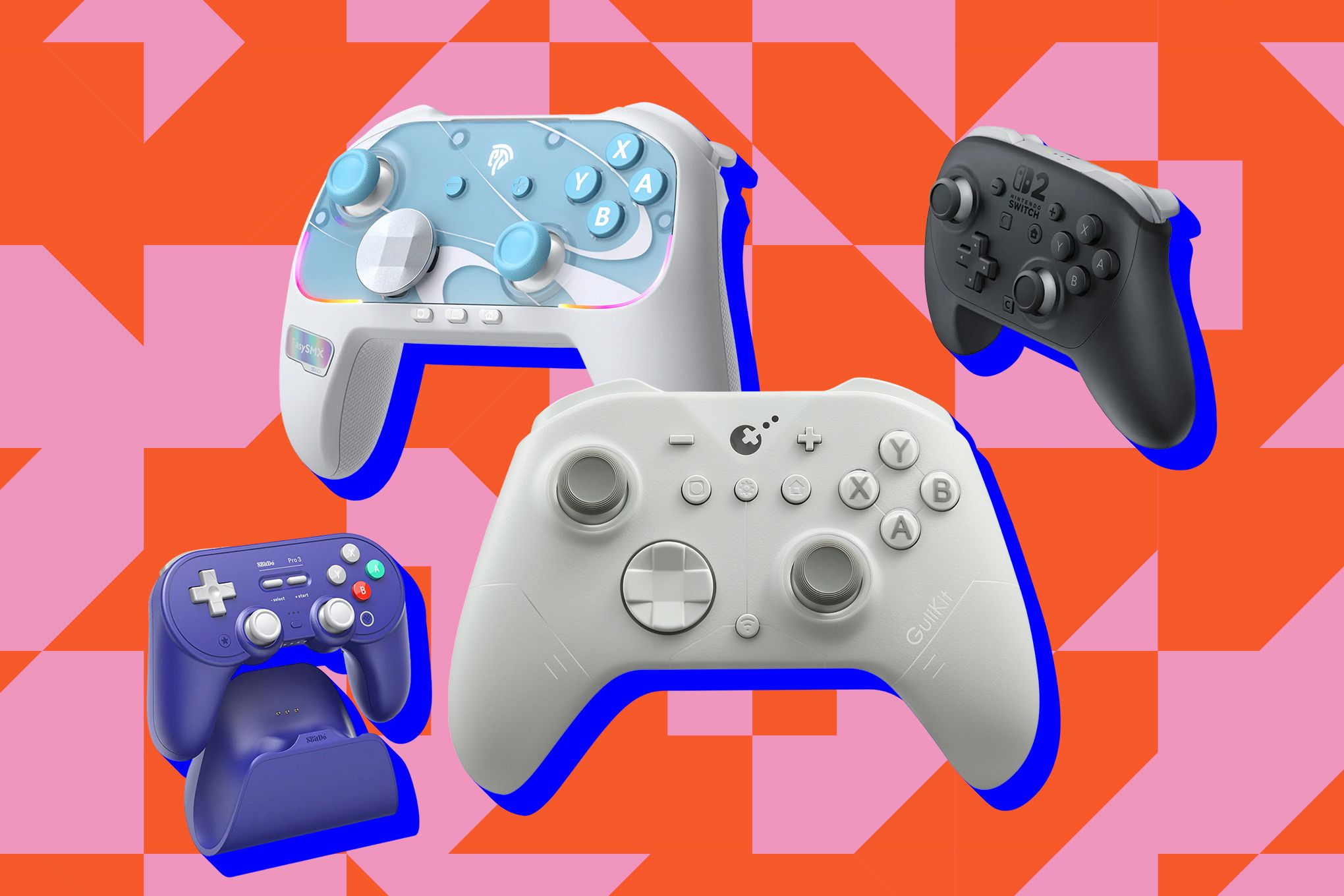The gaming accessory market just got a serious shake-up. While Nintendo's official Switch 2 Pro Controller commands $89.99, third-party alternatives are delivering nearly identical features for as little as $29.99. After extensive hands-on testing, the EasySMX S10 emerges as the clear winner, packing TMR joysticks, amiibo support, and HD rumble into a $48 package that rivals Nintendo's flagship gamepad.
The Switch 2 controller wars are heating up, and Nintendo's getting schooled on value. After weeks of testing third-party gamepads, it's clear that spending $89.99 on Nintendo's Pro Controller isn't the no-brainer it once seemed. The EasySMX S10 Gaming Controller emerges as the standout winner at $47.99, delivering nearly everything Nintendo's flagship offers while undercutting it by $42. That's not a typo - you're getting TMR joysticks, amiibo support, HD rumble, and Switch 2 wake functionality for half the price. The S10 even includes features Nintendo skipped, like a swappable eight-way D-pad that makes diagonal attacks in games like Hollow Knight effortless. But here's what really impressed during testing: the rumble quality. Most third-party controllers phone in the haptic feedback, but the S10 nails Nintendo's HD rumble implementation better than competitors costing twice as much. The catch? Button feel is divisive - they're softer with shorter travel than most gamers expect. Some testers loved it, others found it mushy. The real budget champion is GuliKit's ES Pro at $29.99. This Xbox-inspired gamepad shouldn't work this well at this price point, but it does. The eight-way D-pad switches between full directional input and cardinal-only modes, making it perfect for fighting games and Metroidvanias. Like the S10, it packs TMR joysticks that resist the drift issues plaguing Nintendo's potentiometer-based sticks. The ES Pro can even wake your Switch 2 from across the room via a quirky setup process that involves holding specific button combinations. The trade-offs are real though - rumble feels like a cheap phone buzzer, and you lose amiibo support plus the GameChat C button. For $60 less than Nintendo's controller, those compromises might be worth it. Premium seekers should eye 8BitDo's Pro 3 at $62.99. This PlayStation-layout controller brings serious customization game with swappable analog stick caps, removable ABXY buttons, and trigger locks. The included arcade-style stick nubs feel fantastic in fighting games, while the retro-colored face buttons add nostalgic flair. Software customization runs deep through 8BitDo's app. But the Pro 3 stumbles on fundamentals - rumble quality ranks among the worst tested, and it can't wake the Switch 2. At $63, you expect better basics. The testing revealed a consistent pattern: every third-party option uses superior joystick technology compared to Nintendo's Pro Controller. While Nintendo sticks with drift-prone potentiometers, companies like GuliKit and EasySMX deploy TMR (tunneling magnetoresistance) technology that's both more durable and power-efficient than Hall effect alternatives. GameSir's Super Nova ($49.99) and GuliKit's Elves 2 ($29.99) round out the tested lineup with mixed results. The Nova looks sleek with magnetic faceplates and RGB lighting, but button quality feels cheap despite responsive underlying tech. The compact Elves 2 works great for smaller hands but sacrifices trigger range and advanced features. What's striking is how these budget controllers expose Nintendo's pricing strategy. The Switch 2 Pro Controller's $90 price tag seems harder to justify when competitors deliver 80-90% of the experience for 30-50% of the cost. Nintendo's main advantages - OS-level customization, premium build quality, and that coveted 3.5mm headphone jack - matter less when you're saving $40-60. The third-party surge isn't slowing down either. GuliKit's upcoming TT Max and TT Pro controllers promise adjustable stick tension and improved rumble, while newcomer Mobapad is testing budget and premium options. PowerA just launched a $69.99 Advantage Wireless Controller with Hall effect sticks, though it oddly lacks rumble. The message is clear: Nintendo's controller monopoly is over. Whether you want premium features on a budget (S10), bare-bones value (ES Pro), or customization depth (Pro 3), third-party options deliver without the Nintendo tax. The only question is which compromises you're willing to accept for the savings.











